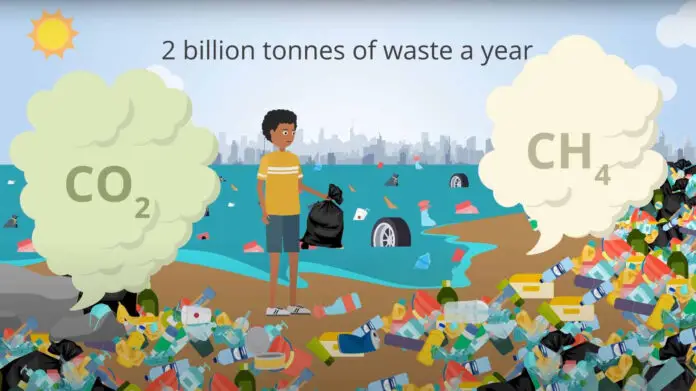Scientists from The University of Manchester have developed a pioneering process using engineered bacteria to transform complex mixed waste into sustainable biopolymers including human therapeutics such as insulin, and bioplastics.
A new study from the Manchester Institute of Biotechnology describes a novel biological method to convert mixed municipal waste-like fractions – including food scraps, plastics, and textiles – into valuable bio-products. This new approach could significantly reduce waste sent to landfills and cut greenhouse gas emissions.
Led by Dr Neil Dixon, the team utilised the bacterium Pseudomonas putida, renowned for its resilience and adaptability, to process complex waste streams into bioplastics and even therapeutic proteins. This research offers a promising pathway toward achieving a circular economy, where waste is reused and repurposed rather than discarded.
Dr Neil Dixon, Reader in Sustainable Biotechnology, said: “Municipal waste is incredibly diverse, from plastics to paper to food scraps, its composition changes depending on geography and season. Our process uses enzymes to break down these materials into basic building blocks, which bacteria can then convert into useful products.”
Turning waste into wealth
Every year, over two billion tonnes of municipal solid waste (MSW) is generated worldwide. This figure is expected to rise to 3.4 billion tonnes by 2050. Conventional waste treatments like incineration and landfill contribute to environmental pollution and greenhouse gas emissions, but the Manchester team’s approach addresses these issues by creating a circular bioprocess whereby anthropogenic waste is turned into useful products.
Firstly, the team pre-treated representative waste types via enzymatic hydrolysis, a process that breaks down the waste into monomers. These monomers were then added to a bioreactor containing and engineered strain of Pseudomonas putida, which used them for metabolic activity and bioproduction.
Tackling environmental pollution
The process offers a way to mitigate the impact of anthropogenic waste on the environment. A life cycle assessment revealed that the proposed approach could reduce the carbon footprint of waste management by up to 62% compared to traditional methods like landfill or incineration. The study also found that this new process could be more cost-effective, with savings of up to 37% compared to current waste treatments.
Key to this success is the adaptability of Pseudomonas putida. Unlike most microorganisms, which struggle to process multiple types of waste simultaneously, the engineered bacteria can metabolise a mix of sugars, acids, and oils derived from various waste materials.
“This flexibility makes our system robust and reliable, regardless of the type of waste input,” says Dr Dixon.







